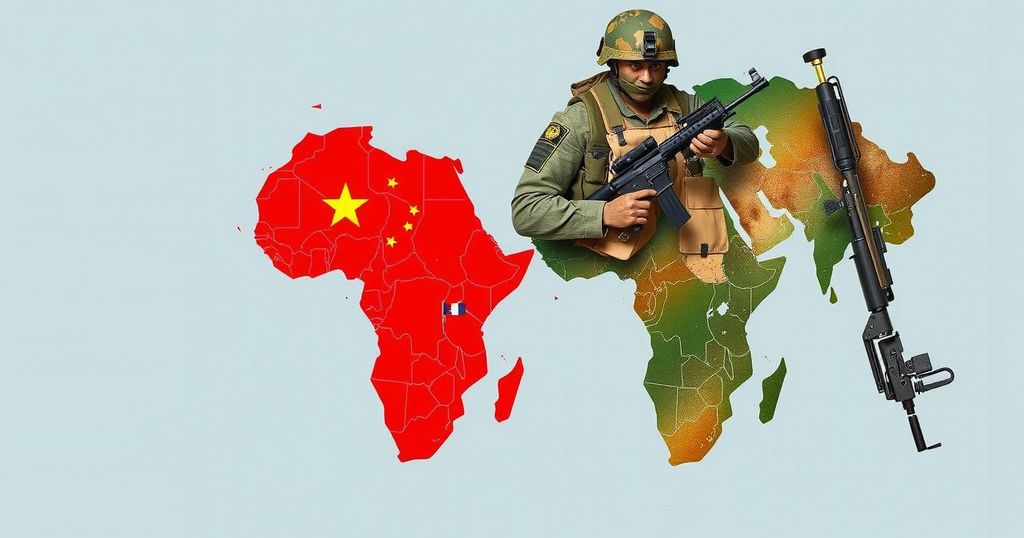China’s Commitment: Wang Yi Promises Military Aid to Africa

Chinese Foreign Minister Wang Yi pledged military aid and support to Africa during his visit to Nigeria, highlighting China’s commitment to assist in addressing African issues through local solutions. The visit, part of a broader tour, underscored the geopolitical dynamics at play as African nations reassess their international partnerships amidst rising tensions between global powers. Wang’s promises included training for thousands of troops and police, amidst significant trade relations between China and Nigeria, valued at $22.6 billion in 2023.
Chinese Foreign Minister Wang Yi, during his recent visit to Nigeria, committed China’s full backing and military assistance to Africa, which he described as the world’s poorest continent. Concluding his African tour, which commenced on January 6 and included stops in Namibia, the Republic of Congo, and Chad, Wang engaged in discussions with Nigerian President Bola Ahmed Tinubu and Foreign Minister Yusuf Tuggar in Abuja. He affirmed, “China will firmly support Africans in addressing African issues in the African way; African people are the real masters of this continent.”
Wang has pledged a substantial military aid package of one billion yuan (approximately $136 million), which will include the training of 6,000 troops and 1,000 police officers across Africa. Furthering his support, he stated, “China supports Nigeria in rallying countries in the region to achieve strength through unity, to build synergy through reconciliation, and to promote security through cooperation.”
The visit also highlighted the geopolitical context in which this military aid is offered. Tensions have risen among global powers in Africa following a series of military coups in West African nations. Many former French colonies are reorienting their alliances toward other powers such as Moscow and Beijing. With robust trade ties, Nigeria relied on exporting gas and oil to China, with an estimated trade volume of $22.6 billion in 2023, reinforcing the economic connections between the two nations.
China’s influence extends beyond trade, as it has invested in infrastructural projects throughout Africa, although this has sometimes resulted in increased debt levels for various African nations. In September, Chinese President Xi Jinping promised $50 billion in aid to Africa at a China-Africa cooperation summit. Analysts suggest that while China’s engagement in Africa has been extensive, economic challenges at home could shape future policies, potentially intertwined with strategic considerations amid escalating competition with the United States.
The geopolitical landscape in Africa has evolved dramatically with shifting allegiances and increased foreign interests following military coups in several West African nations. Former colonial powers’ influence is waning, while relationships with nations such as China, Russia, and Turkey have intensified. This changing dynamic places countries like China, which has positioned itself as a significant partner by investing in development projects, minerals, and technology, at the forefront of the continent’s emerging collaborations. The narratives of trade, military aid, and geopolitical posturing raise important questions about the future balance of power in Africa.
In conclusion, Chinese Foreign Minister Wang Yi’s recent commitments to provide military aid and training to Africa reflect Beijing’s strategy to enhance its influence on the continent amid a complex geopolitical environment. This initiative underscores China’s intent to strengthen alliances, particularly with Nigeria, as it navigates challenges at home and positions itself in response to U.S. competition. The pledges made during Wang’s tour signify a broader trend of increasing support and investment in Africa, which simultaneously raises concerns about the implications of deepening debt for the region’s countries.
Original Source: www.france24.com








